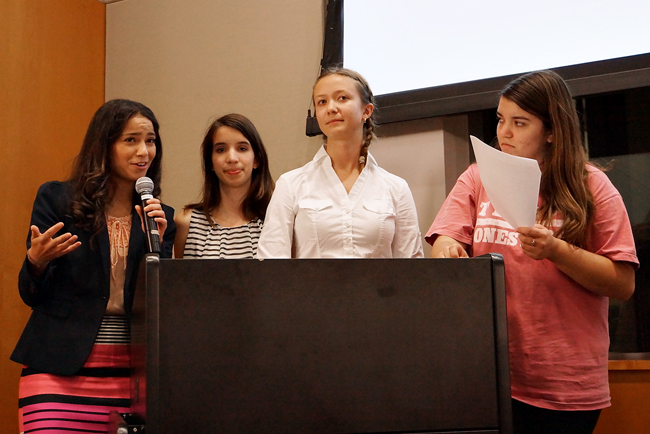The Senate of College Councils passed a resolution at a meeting Thursday requesting the University require the honor code be placed on all course syllabuses. With its passing, the resolution will be submitted to the Faculty Council for review.
In 2012, the Senate of College Councils changed the University’s academic honor code to read: “As a student of the University of Texas at Austin, I shall abide by the core values of the University and uphold academic integrity.”
“That’s something that every student looks at, and that’s a contract between a student and a professor,” said Sasha Parsons, at-large Senate representative and author of the resolution. “So, there’s no better place to have it right now.”
According to the Senate President Geetika Jerath, current syllabuses have a section included about academic dishonesty, but it is usually outdated, written by a specific department or not consistent across the University. Jerath said the goal of the resolution is to establish a consistent honor statement in all University syllabuses and open a dialogue about how it varies for individual professors.
“We need to have discussions,” Jerath said. “[Academic integrity] differs from each college, each class. There are different components to each classroom — whether it has technology or not. So, we really wanted to start that discussion and have something feasible to work on.”
Many students do not know what happens when one is accused of academic dishonesty, but having information about Student Judicial Services in syllabuses would clarify that process, according to Parsons.
“We really want students to understand the repercussions if they do something wrong, but also who’s there to help them,” Parsons said.
Parsons said the honor code will help to maintain the value of a student’s education at UT.
“We’re here to get degrees and certification that we have learned something,” Parsons said.
At the meeting Thursday, representatives suggested to the authors that a statement be added to the resolution requesting that professors define what academic dishonesty is in their specific course, but the amendment did not pass.
Shannon Geison, at-large Senate representative and author of the resolution, said personal professor statements should be discussed in a later bill, after more research has been done.
“I think that all of the opposition that we have seen has just been trying to have professors provide more definitions and having them address these things, like technology in the classroom,” Geison said. “Which are things we are definitely talking about but coming at a later date.”
Geison said these statements should include integrity policies on the use of technology — such as Google Docs, QUEST and Spark Notes — in the classroom. The topic will be discussed on Nov. 19 at a Campus Conversation meeting hosted by the Senate’s Academic Policy Committee.
According to Parsons, some students have expressed concerns that having the honor code in a syllabus will not change academic dishonesty, but she said it would with time.
“We just have to realize that everything is a gradual process, and it’s about the attitude people have and talking about integrity and the hard decisions we make in college,” Parsons said.





















